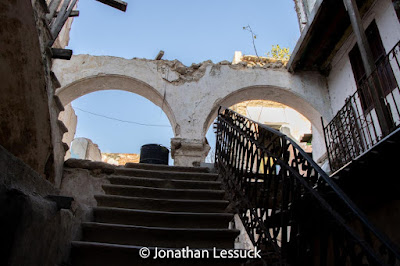Walking in Old Havana
Cuba has always fascinated me. My interests have been both political and cultural. This spring I had the opportunity to visit the island on a photographers tour.
Cuba has suffered as a geopolitical ping-pong ball for over five hundred years. It was a Spanish colony for four centuries, and then an “independent” country, heavily under the thumb of the United States. In 1959, the 26th of July Movement, led by Fidel Castro, overthrew the military dictatorship of Fulgencio Batista. In 1960, Cuba nationalized the business holdings of U.S. companies, primarily oil refineries and sugar plantations. The United States instituted an embargo of goods shipped to, and bought from the island. Whatever your opinion of Cuba’s government, “el bloquero” has had a huge effect on the lives of the average Cubans, especially after the the fall of the Soviet Union in 1989. These issues have been magnified by the loss of tourism during the pandemic.
The shortages are evident in the capital city of Havana. I stayed in the a “casa particular,” the Cuban equivalent of of Air BnB, in the Vedado neighborhood. On a walk around my block, I found buildings that looked like they were disrepair, although obviously inhabited. There were old mansions that now served as government offices, a ballet school, and a neighborhood cultural resource, offering art classes and performance spaces. And there was the Teatro Amadeo Roldan, built in 1928. It was burnt down in 1977, and reopened in 1998. It was now under-going a total renovation to try and fix mistakes made during the previous work.
 |
| Cuban National Ballet School |
 |
| Teatro Amadeo Roldan |
Local photographer Carlos Otero Blanco was one of our guides. He took us on a short tour of Viejo Havana. But first we went to El Parque del Cristo de La Habana, where there are great views of the old city. However, when we arrived there was a small brush fire in the hillside along the park. This gave us the opportunity to watch the Bomberos de la Habana is action, putting out the fire.
After that excitement, we headed to Viejo Havana, the old city. Walking around, we explored the streets and buildings of the neighborhood. I had the opportunity to meet Habeneros in Havana. They were friendly, outgoing, and quick to talk (and talk quickly). It was a great afternoon.
 |
| Celebrating Barcelona's win over Real Madrid |
 |
| The roof of this building collapsed over a year before our trip. |
 |
| Carlos Otero Blanco showing his jump rope skills |
For dinner we visited the 7deEspada restaurant. I had a mojito and some shrimp tacos, while we listened to some great live music. You can check out a video of the band here.
As afternoon in Old Havana was a great way to start my trip in Cuba. But it was only the beginning, and there is a lot more to share.

































I too am fascinated by this society. I love the photos you included here which gives us a good look at the reality of Cuban life. Thank you. AMD
ReplyDelete